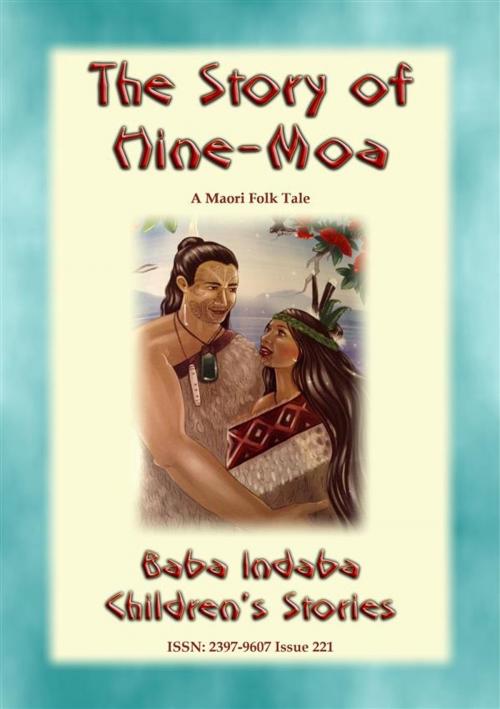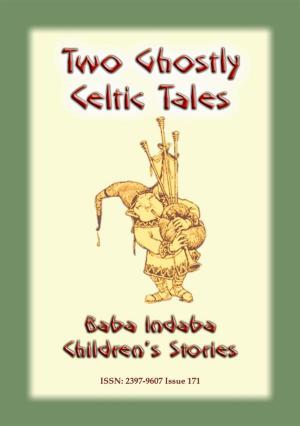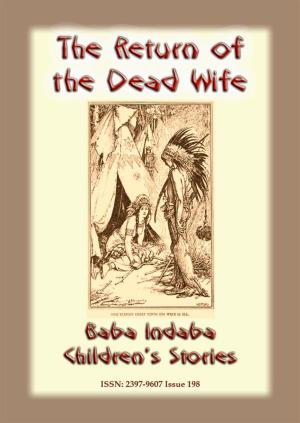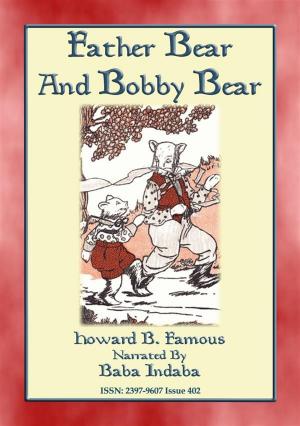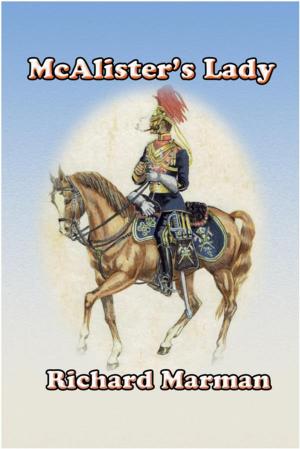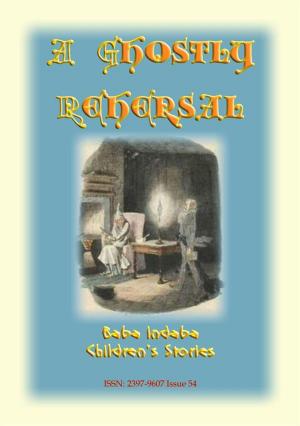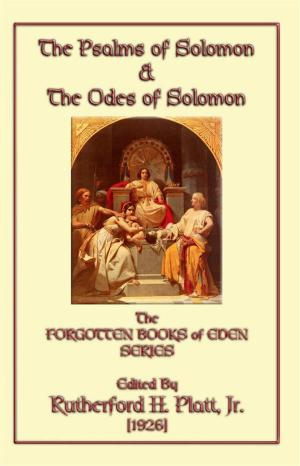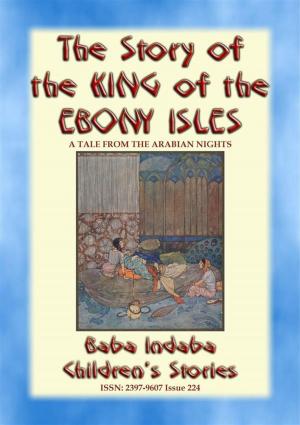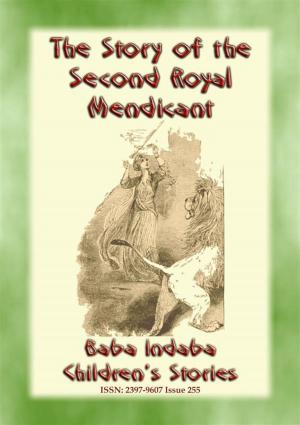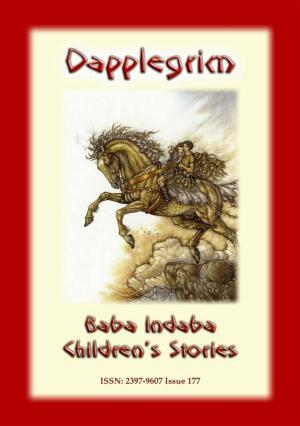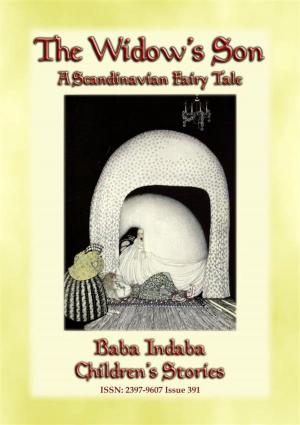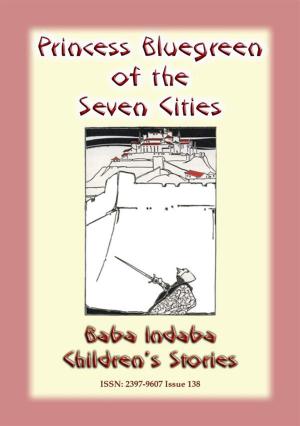THE STORY OF HINE-MOA - A Maori Legend
Baba Indaba Children's Stories Issue 221
Nonfiction, History, Australia & Oceania, Fiction - YA, Fiction & Literature| Author: | Anon E. Mouse, Narrated by Baba Indaba | ISBN: | 9788826088051 |
| Publisher: | Abela Publishing | Publication: | May 8, 2017 |
| Imprint: | Language: | English |
| Author: | Anon E. Mouse, Narrated by Baba Indaba |
| ISBN: | 9788826088051 |
| Publisher: | Abela Publishing |
| Publication: | May 8, 2017 |
| Imprint: | |
| Language: | English |
ISSN: 2397-9607 Issue 221
In this 221st issue of the Baba Indaba’s Children's Stories series, Baba Indaba narrates the New Zealand, Maori tale of Hine-Moa (Hin-ee-moh-ah). This story occurs in and around Lake Rotorua, in the central North Island of New Zealand.
Rangi-Uru was the name of the mother of a chief called Tutanekai; she was the wife of Whakaue-Kaipapa (the great ancestor of the Ngatiwhakaue tribe (Naa-ti-fak-ou-eh)); but she at one time ran away with a chief named Tuwharetoa (the great ancestor of the Te Heuheu and the Ngatituwharetoa tribes); before this she had three sons by Whakaue, their names were Tawakeheimoa, Ngararanui, and Tuteaiti. It was after the birth of this third son, that Rangi-Uru eloped with Tuwharetoa, who had come to Rotorua as a stranger on a visit. From this affair sprang Tutanekai, who was an illegitimate child; but finally, Whakaue and Rangi-Uru were united again, and she had another son whose name was Kopako; and then she had a daughter whom they named Tupa; she was the last child of Whakaue. They all resided on the island of Mokoia in Lake Rotorua.
Word reached the sons of Tutanekai of a maiden of rare beauty named Hine Moa and each of the brothers desired to have her as a wife.
Tutanekai played the horn, and his friend Tiki the pipe. In the evenings they would play their instruments, and in calm evenings the sound of their music was wafted by the gentle land--breezes across the lake to the village at Owhata, where dwelt the beautiful young Hine-Moa, the younger sister of Wahiao
Often Hine-Moa would hear the sweet sounding music of the instruments of Tutanekai and Tiki, which gladdened her heart
'In the great assembly of the people Hine-Moa had seen Tutanekai, and they often glanced at each other and sometimes caught the eye of one another which they both found pleasing. They found this pleasing, and thought each other worthy of love, so that in their breasts the secret passion for the other grew.
But what of their unrequited love? Tutanekai was the youngest and would be the last of the brothers to be considered a suitable husband for Hinemoa. What were they to do? Would young love and their passion find a way? You are invited to download the story here and find out what the outcome of their growing love was?
Baba Indaba is a fictitious Zulu storyteller who narrates children's stories from around the world. Baba Indaba translates as "Father of Stories".
Each issue also has a "WHERE IN THE WORLD - LOOK IT UP" section, where young readers are challenged to look up a place on a map somewhere in the world. The place, town or city is relevant to the story. HINT - use Google maps.
10% of the profit from the sale of this book will be donated to charities.
INCLUDES LINKS TO DOWNLOAD 8 FREE STORIES
ISSN: 2397-9607 Issue 221
In this 221st issue of the Baba Indaba’s Children's Stories series, Baba Indaba narrates the New Zealand, Maori tale of Hine-Moa (Hin-ee-moh-ah). This story occurs in and around Lake Rotorua, in the central North Island of New Zealand.
Rangi-Uru was the name of the mother of a chief called Tutanekai; she was the wife of Whakaue-Kaipapa (the great ancestor of the Ngatiwhakaue tribe (Naa-ti-fak-ou-eh)); but she at one time ran away with a chief named Tuwharetoa (the great ancestor of the Te Heuheu and the Ngatituwharetoa tribes); before this she had three sons by Whakaue, their names were Tawakeheimoa, Ngararanui, and Tuteaiti. It was after the birth of this third son, that Rangi-Uru eloped with Tuwharetoa, who had come to Rotorua as a stranger on a visit. From this affair sprang Tutanekai, who was an illegitimate child; but finally, Whakaue and Rangi-Uru were united again, and she had another son whose name was Kopako; and then she had a daughter whom they named Tupa; she was the last child of Whakaue. They all resided on the island of Mokoia in Lake Rotorua.
Word reached the sons of Tutanekai of a maiden of rare beauty named Hine Moa and each of the brothers desired to have her as a wife.
Tutanekai played the horn, and his friend Tiki the pipe. In the evenings they would play their instruments, and in calm evenings the sound of their music was wafted by the gentle land--breezes across the lake to the village at Owhata, where dwelt the beautiful young Hine-Moa, the younger sister of Wahiao
Often Hine-Moa would hear the sweet sounding music of the instruments of Tutanekai and Tiki, which gladdened her heart
'In the great assembly of the people Hine-Moa had seen Tutanekai, and they often glanced at each other and sometimes caught the eye of one another which they both found pleasing. They found this pleasing, and thought each other worthy of love, so that in their breasts the secret passion for the other grew.
But what of their unrequited love? Tutanekai was the youngest and would be the last of the brothers to be considered a suitable husband for Hinemoa. What were they to do? Would young love and their passion find a way? You are invited to download the story here and find out what the outcome of their growing love was?
Baba Indaba is a fictitious Zulu storyteller who narrates children's stories from around the world. Baba Indaba translates as "Father of Stories".
Each issue also has a "WHERE IN THE WORLD - LOOK IT UP" section, where young readers are challenged to look up a place on a map somewhere in the world. The place, town or city is relevant to the story. HINT - use Google maps.
10% of the profit from the sale of this book will be donated to charities.
INCLUDES LINKS TO DOWNLOAD 8 FREE STORIES
